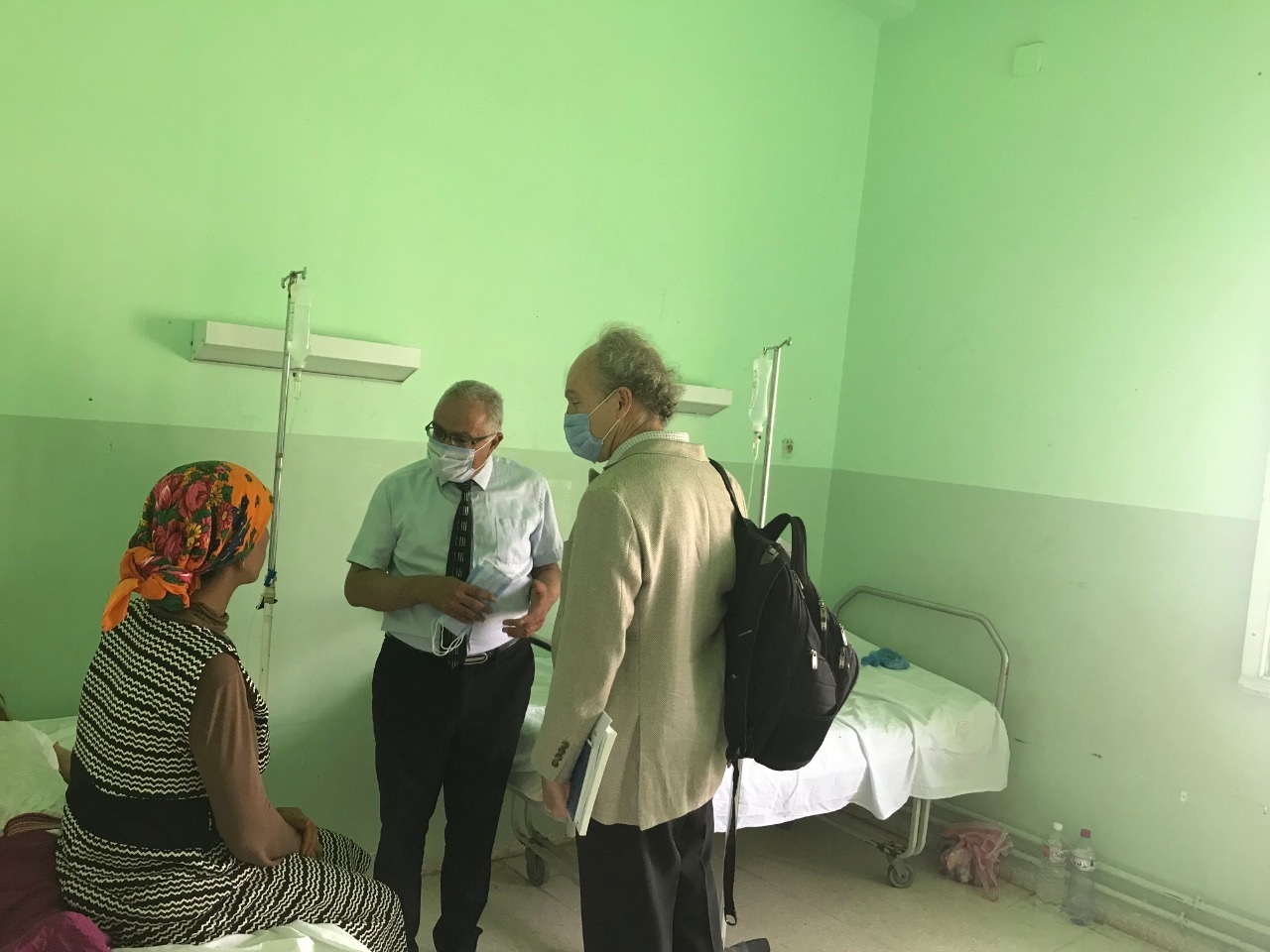 WHO and experts from the Ministry of Health speaking with the mother of a child with measles. Photo: Dr Sherein Elnossery, WHO
WHO and experts from the Ministry of Health speaking with the mother of a child with measles. Photo: Dr Sherein Elnossery, WHOAs part of a regional effort to reduce measles infections and deaths, the WHO Regional Office is supporting Tunisia’s Ministry of Health to investigate the measles outbreaks and implement a massive immunization campaign to reach all unvaccinated people, including those in hard-to-reach communities.
Since the start of the measles outbreak in January, 3644 people are suspected of contracting the disease and 34 have died. Most cases have occurred in Kasserin, Kairouan and Sfax governorates, and the outbreak mostly affects children younger than one year (34%) and adults over 30 years (26%).
Despite high vaccination rates nationwide, parts of Tunisia’s population remain unvaccinated and able to spread the infection. In the current outbreak, almost half of the reported cases were not vaccinated. The first reported case, a one-month old child in Sfax governorate, led to the discovery of additional cases that contracted measles while in hospital.
As a result of this major measles outbreak, the Ministry of Health, together with WHO and key partners, are planning to implement a national mass vaccination campaign for all children, enhance surveillance with active case findings, ensure proper case management and conduct intensive social mobilization to educate the public, and strengthen infection prevention measures inside affected facilities.
The proposed vaccination campaign will target adults aged 20 to 35 years, combined with intensive social mobilization activities, to bolster vaccine acceptance and participation in the campaign. The Ministry of Health relies on its strong international partners to support and expand measles response activities, including WHO for outbreak investigation, surveillance, and for the tracing and vaccination of contacts of known cases.


